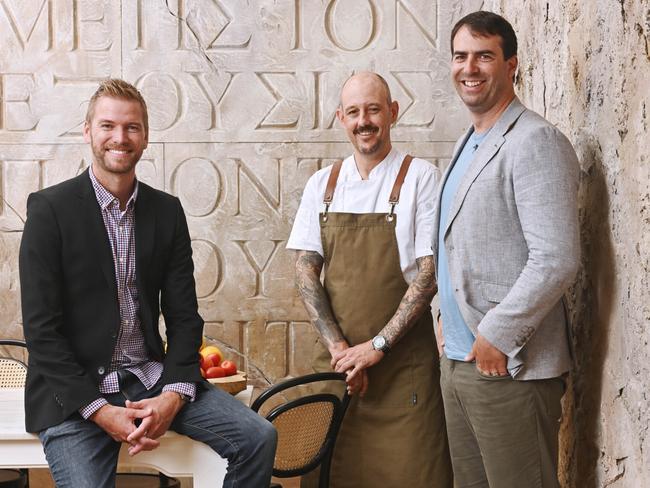The workers in huge demand as employers struggle to fill roles
People living in the right areas or with skills in the right fields have their pick of the jobs right now as employers find it difficult to recruit.
Careers
Don't miss out on the headlines from Careers. Followed categories will be added to My News.
AUSTRALIAN employers are on a hiring frenzy, with a record-breaking number of jobs now up for grabs.
But they are struggling to find suitably-qualified staff to fill all the roles that are available.
Latest figures from the The National Skills Commission reveal recruitment difficulty has reached a new peak since the COVID-19 outbreak.
More than half (54 per cent) of recruiting employers reported having trouble filling vacancies in the four weeks to April 30.
They had a particularly tough time hiring outside of the capital cities, where 64 per cent reported difficulties, and when hiring skilled workers with a certificate III qualification or higher (62 per cent).

The latest SEEK Employment Report also reveals that in April, the number of applications for each job advertisement on seek.com.au was at its lowest level since 2012.
It was likely the result of all states and territories recording the highest job ad volumes ever on the job site.
SEEK managing director for Australia and New Zealand Kendra Banks says the employment market is traditionally quieter at this time of year because of the Easter holidays – but this year is anything but typical.
“The COVID bounce back continues at pace, and particularly in small and medium-sized businesses,” she says.
“Job ad volumes in the hospitality and tourism industry have grown 21.7 per cent month-on-month and are 16 times higher when comparing April, 2021, to April, 2020.”
National Skills Commission figures show 24 per cent of employers across all sectors expect to increase staff numbers in the next three months, compared to 2 per cent who expect to decrease headcounts.
Hiring is particularly likely in the accommodation and food services industry, which includes waiters, kitchen hands, bar attendants and chefs (36 per cent plan to increase) and in healthcare and social assistance, which includes registered nurses, aged and disability carers and child care workers (35 per cent).
To help upskill workers and fill future pipelines of demand, Australian food delivery business Menulog and hospitality training organisation the National Indigenous Culinary Institute (NICI) have partnered to expand NICI into key cities and reach more restaurants and aspiring chefs.
It has started with Menulog making an initial commitment of $100,000.
Menulog managing director Morten Belling says 2020 was a challenging year for the restaurant industry and the company was looking at ways to better support businesses with an increased focus on diversity and inclusion.

NICI chief executive Nathan Lovett says the hospitality industry is struggling to recruit and retain local talent, especially in regional areas.
“This is not a new problem, but has been highlighted even more so while visa workers have been unable to enter the country,” he says.
“NICI focuses on the front-end development of our participants, establishing a solid skillset and understanding of the basics and terminology required in the kitchen, before starting in an apprenticeship.
“Through our development program, Skills for Success, our candidates are more likely to be successful than if they were to enter an apprenticeship day one without any preparation.”
Emmett McLeod is one of more than 200 Indigenous Australians who have participated in programs through NICI.
He had been working in the tattoo industry but wanted a career change and after many months searching for work, was introduced to the institute through his job active provider, Asuria.
McLeod enrolled in the Skills for Success program and is now an apprentice chef with Sydney-based Greek restaurant Alpha, which has reopened its doors after a refit.
“Having people motivate me on my journey returning to full-time work, while helping me with my development to prepare me for taking on an apprenticeship to become a qualified chef, made all the difference in me being successful in achieving an apprenticeship,” he says.
“Now I get up at 6:30am and I can’t wait to get into the kitchen and peel carrots and contribute to the kitchen in any way I can while learning to cook with the best of them in the business.”
Originally published as The workers in huge demand as employers struggle to fill roles




